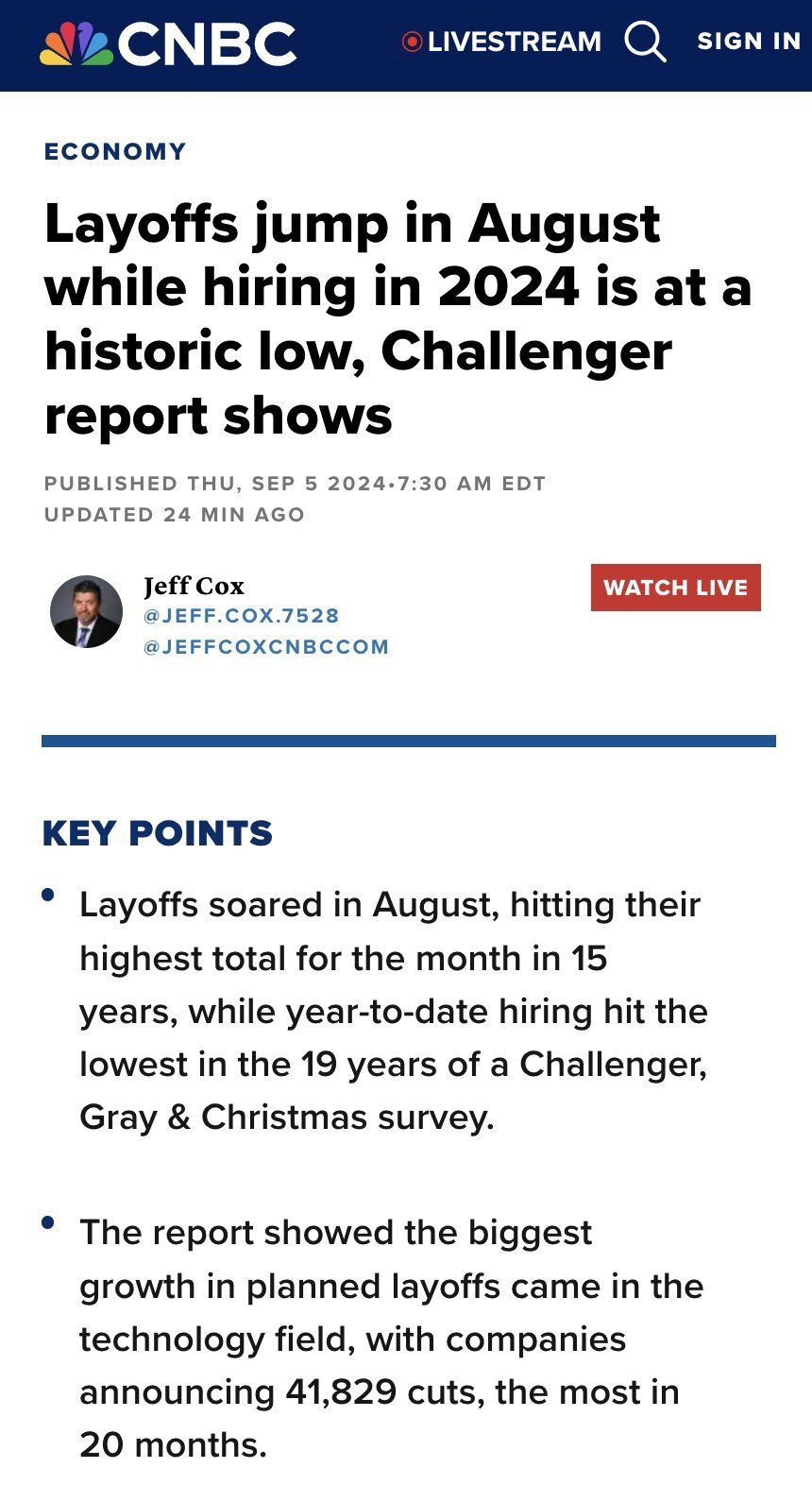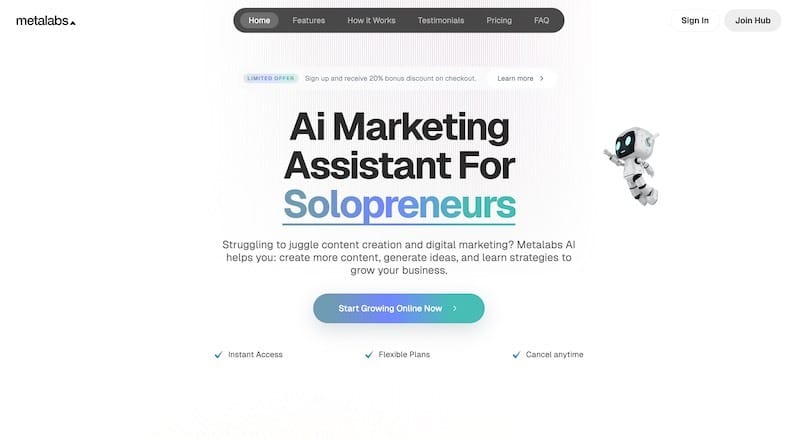
Are we running modern businesses wrong? We are told to hire managers, create structured teams, and step back as companies grow. But what if founders stayed more involved—not less? If they stopped fearing micromanaging and took more ownership of the process, even as the companies grew to 1000s of people.
It might seem counterproductive. Yet, Paul Graham introduced this idea Founder Moder last week and is shaking up Silicon Valley.
This week we’ll get into:
What Founder Mode is and why it is causing such a stir in the tech world?
The economic and technological forces are driving this shift in business.
How Founder Mode differs from traditional management—and why it works.
Ways to apply these insights to your business or career, no matter its size.
It’s an interesting on that could change how you think about running your business.
Let's get into it.
Founder Mode
What is Founder Mode?
Paul Graham, the co-founder of Y Combinator and a respected voice in the startup world, recently wrote an essay that's got everyone talking. It is a new way to build and grow companies that he calls "founder mode." The idea itself is all about challenging our current beliefs about business management.
Founder mode is, at its core, about rejecting the usual ways to scale and run companies. It’s about founders who are finding success by staying involved in their growing businesses.
Graham talks about the co-founder and CEO of Airbnb Brian Chesky's experience:
"The theme of Brian's talk was that the conventional wisdom about how to run larger companies is mistaken. As Airbnb grew, well-meaning people advised him that he had to run the company in a certain way for it to scale. Their advice could be optimistically summarized as 'hire good people and give them room to do their jobs.' He followed this advice and the results were disastrous."
This experience led Chesky to develop a different approach, which Graham calls "founder mode." It's about staying intimately involved with the business, maintaining a clear vision, and ensuring every aspect of the company aligns with the founder's insights – even as the organisation grows to hundreds or thousands of employees.
This isn't just about micromanagement. It's about knowing every part of the business and staying as closely involved as possible instead of relying on middle managers.
Why is the shift to Founder Mode?

Over $1.05 trillion was wiped out from the US stock market in 1 day
Economic pressures forcing layoffs:
With trillions lost in the market in the last few days, companies are trying to reduce expenses.
Graham points out that companies running in founder mode can be incredibly cost-effective. Referring to Chesky's approach at Airbnb, he notes: "So far it seems to be working. Airbnb's free cash flow margin is now among the best in Silicon Valley."
Learning from Apple’s success: Chesky didn't develop this approach in isolation. As Graham mentions, "He had to figure out a better way on his own, which he did partly by studying how Steve Jobs ran Apple." This suggests that the success of tech giants like Apple is inspiring a new generation of founders to stay more involved.
Founder’s taking more ownership: Graham argues that "There are things founders can do that managers can't, and not doing them feels wrong to founders because it is." This suggests that the unique perspective and drive of founders can't be easily replicated by professional managers.
The AI, Software & Automation: As AI capabilities grow, it's changing how we work and make decisions. AI tools can now handle many tasks that previously required human management, allowing founders to stay more directly involved in key areas of their business without getting bogged down in day-to-day operations.
The rise of 10x talent and remote work:
One person who can use AI effectively can now do the work of 2-5 people. This multiplier effect means that small, highly skilled teams can achieve what once required large departments.
Companies can now hire top talent from anywhere in the world. This global talent pool allows founders to build dream teams without geographical constraints, further enabling a hands-on approach to leadership.
How does this apply to you and me?
Most readers here aren’t looking to build a Fortune 500 company. We are more interested in building profitable businesses that enrich out lives. But there are lessons to learn from this new approach.
So if you're a freelancer, coach, consultant, or solopreneur, here's how I believe we can take the positives from "Founder Mode":
Use technology:
Automation can handle repetitive tasks. For example, set up email autoresponders, use scheduling tools for appointments, and implement chatbots for customer service.
Invest in software that multiplies your capabilities. Look into AI-powered tools for content creation, data analysis, or project management.
Hire remote assistance:
Bring on task-based roles to handle specific needs. Instead of full-time employees, consider hiring specialists for one-off projects or ongoing part-time work.
Delegate what you know well, freeing up your time for high-value work. Start by documenting your processes, then find talented individuals who can take over these tasks.
Stay involved in the process:
You're not building a Fortune 500 company (unless that's your goal). But you can still get a lot done by being more hands-on within your business. From design, and marketing to sales.
Founder mode can be managing a large company but it is also a new way we can look at building lifestyle businesses.
As a note on this — over the past 1-2 years I’ve been transitioning more into a Founder mode by doing the steps above. Less managing a remote team and more working in the business. I’m enjoying the freedom it has given and it’s been interesting to see more people take on this solopreneur/founder mode approach.
🎁 Members Freebie
Free MetalabsAI Credits
On the idea of AI, software and automation I’ve been cooking this AI tool which I want to give free credits to readers of the newsletter as a thank you,
Get free credits to try out MetalabsAI, an innovative Marketing Assistant AI tool. Whether you're crafting compelling ads copy, brainstorming social media campaign ideas, or writing sales emails, MetalabsAI is there to help.
👉 Claim your free AI credits now and experience the power of AI-assisted marketing firsthand.
Get your free AI Marketing Assistance credits by signing up here.
Try MetalabsAI today and see the difference AI can make in your business.
And that is it for this week's newsletter.
Wishing you a great week ahead as always
Let's catch up soon
Matt
Stay awesome
🫶
P.s
You can reply to this email to let me know your thoughts on Founder Mode.

💌 Share this newsletter
Share this newsletter with friends, family & your dog.
📝 What did you think of this newsletter?
Help shape the content you see here by giving feedback
Do you know someone who’d love this newsletter? Forward it to a friend and have them sign up here.


